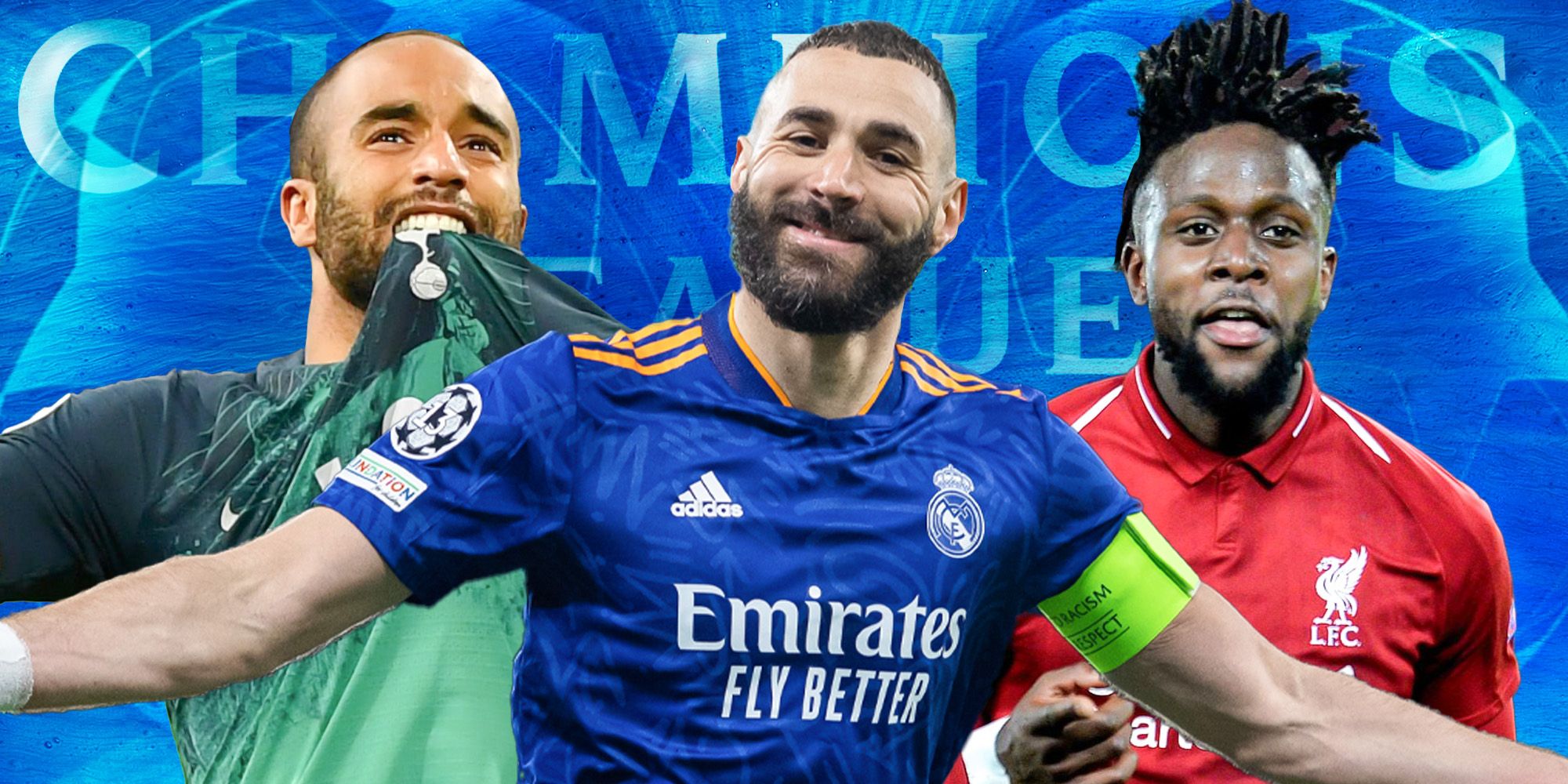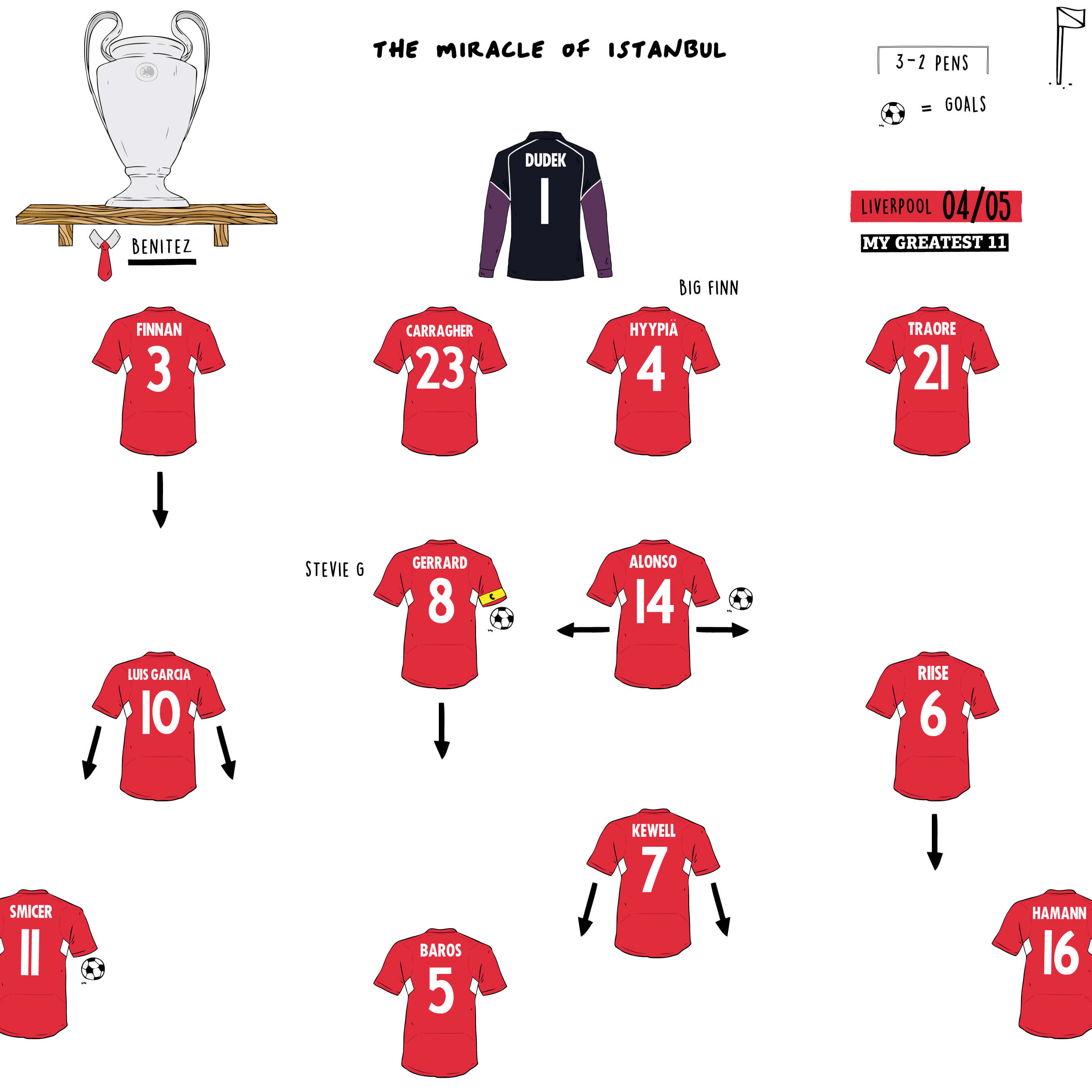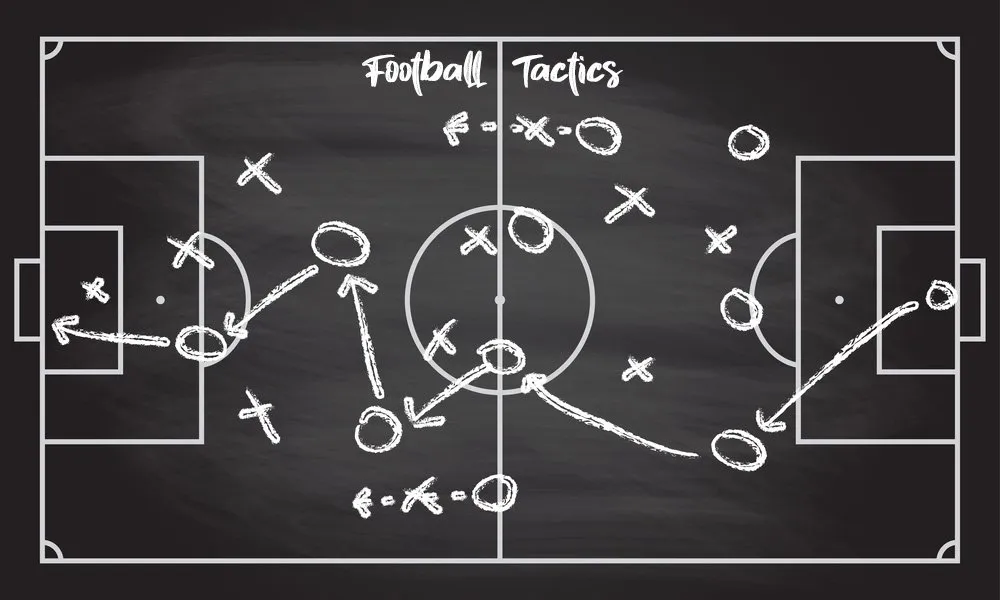
The Unthinkable Made Real: Journey Through the UEFA Champions League’s Greatest Comebacks
The UEFA Champions League, Europe’s premier club football competition, is a stage where dreams are forged and legends are born. It’s a tournament renowned not just for its exquisite skill and tactical masterclasses, but for its unparalleled drama, especially when the seemingly impossible becomes reality. Few spectacles in sports are as captivating as a team rising from the ashes, defying overwhelming odds, and turning a hopeless deficit into glorious triumph. These are the "comebacks" – moments of sheer will, tactical brilliance, and raw emotion that etch themselves into the annals of football history.
This article delves into the most iconic and breathtaking comebacks in Champions League history, exploring the factors that fueled these incredible turnarounds and the lasting impact they had on players, clubs, and fans alike.
The Miracle of Istanbul: Liverpool vs. AC Milan (2005 Final)
Perhaps the most legendary comeback of all time, the 2005 final in Istanbul remains the gold standard against which all other comebacks are measured. AC Milan, a team boasting legends like Paolo Maldini, Andrea Pirlo, Kaká, and Andriy Shevchenko, dismantled Liverpool in the first half, racing to a commanding 3-0 lead by halftime. The trophy seemed destined for Milan, and many Liverpool fans were already resigned to defeat.
However, what unfolded in the second half defied all logic. Spurred on by captain Steven Gerrard, who scored a header in the 54th minute, Liverpool found a renewed belief. Two minutes later, Vladimír Šmicer netted a long-range effort, and by the 60th minute, Xabi Alonso converted a penalty rebound after his initial shot was saved, drawing Liverpool level at 3-3. The momentum had swung violently. The remaining minutes of normal time and extra time were a frantic display of defensive heroics and last-dditch saves, most notably Jerzy Dudek’s double save from Shevchenko. The game went to penalties, where Dudek’s "spaghetti legs" antics unsettled Milan’s shooters, securing a miraculous 3-2 shootout victory for Liverpool and their fifth European Cup. It was a comeback built on raw desire, an unyielding spirit, and the tactical gamble of manager Rafa Benítez.
La Remontada: Barcelona vs. Paris Saint-Germain (2017 Round of 16)
Fast forward to 2017, and the Champions League witnessed a comeback of a different, yet equally astonishing, nature. Paris Saint-Germain, under Unai Emery, had delivered a footballing masterclass in the first leg of their Round of 16 tie against Barcelona, securing a dominant 4-0 victory at the Parc des Princes. No team in Champions League history had ever overturned a four-goal deficit in the knockout stages. The task for Barcelona seemed insurmountable.
Yet, at Camp Nou, the Catalan giants, fueled by a ferocious crowd and an unshakeable belief, began to chip away at the deficit. Luis Suárez scored early, followed by a Layvin Kurzawa own goal. Lionel Messi converted a penalty, making it 3-0 on the night, but Edinson Cavani’s away goal for PSG in the 62nd minute seemed to seal Barcelona’s fate, making the aggregate score 5-3 in PSG’s favour and requiring three more goals from Barça.
With just minutes remaining, the impossible began to unfold. Neymar scored a stunning free-kick in the 88th minute, then converted a penalty in the 91st. The aggregate was now 5-5, but PSG still held the away goal advantage. Then, in the 95th minute, with virtually the last kick of the game, Neymar floated a ball into the box, and Sergi Roberto, of all people, stretched to poke it past Kevin Trapp. Camp Nou erupted. Barcelona had won 6-1 on the night, an aggregate of 6-5, completing "La Remontada" – "The Comeback." It was a testament to the power of belief, individual brilliance (especially Neymar’s late heroics), and the relentless pressure of a truly desperate team.
Anfield’s Roar: Liverpool vs. Barcelona (2019 Semi-Final)
Just two years after La Remontada, Barcelona found themselves on the receiving end of another historic turnaround, this time at the hands of Jürgen Klopp’s Liverpool. After a Lionel Messi masterclass in the first leg at Camp Nou, which saw Barcelona win 3-0, Liverpool faced an uphill battle. They were also without key attacking players Mohamed Salah and Roberto Firmino due to injury, making the task even more daunting.
Anfield, however, is a special place on European nights. From the first whistle, Liverpool attacked with ferocity, fueled by a crowd that believed even when logic dictated otherwise. Divock Origi scored early, giving them a glimmer of hope. In the second half, Georginio Wijnaldum, introduced as a substitute, scored two goals in quick succession – a powerful low shot in the 54th minute and a towering header in the 56th – to level the aggregate score at 3-3.
The defining moment came in the 79th minute. Trent Alexander-Arnold, spotting Barcelona’s defense momentarily switched off, took a corner quickly, finding Origi unmarked in the box. The Belgian striker finished calmly, sending Anfield into delirium. Liverpool had won 4-0 on the night, an aggregate of 4-3, and remarkably progressed to the final. It was a victory forged in the crucible of collective will, tactical genius, and the electrifying atmosphere of Anfield, proving that even the greatest players like Messi can be overwhelmed by relentless intensity.
The Eternal City’s Uprising: Roma vs. Barcelona (2018 Quarter-Final)
Before their 2019 heartbreak at Anfield, Barcelona had already experienced the bitter taste of a stunning Champions League comeback. In the 2018 quarter-finals, after securing a seemingly comfortable 4-1 victory at Camp Nou, they traveled to Rome for the second leg against AS Roma. The deficit for Roma was significant, and an away goal for Barcelona meant Roma needed to win by at least three clear goals without conceding.
What followed was a masterclass in determination and tactical execution from Eusebio Di Francesco’s Roma. From the start, they pressed Barcelona relentlessly. Edin Džeko scored an early goal in the 6th minute, sparking belief among the home fans. In the 58th minute, Daniele De Rossi converted a penalty, making it 2-0 on the night and narrowing the aggregate to 4-3. The tension inside the Stadio Olimpico was palpable.
Then, in the 82nd minute, Kostas Manolas etched his name into Roma folklore. The Greek defender rose highest to head home a corner, the ball nestling in the net. The stadium erupted in pandemonium. Roma had won 3-0 on the night, and on away goals, they had sensationally knocked out Barcelona, who had been considered strong contenders for the title. It was a triumph of underdog spirit, tactical discipline, and the sheer will to defy expectations.
The Forgotten Masterpiece: Deportivo La Coruña vs. AC Milan (2004 Quarter-Final)
Often overshadowed by more recent or high-profile comebacks, Deportivo La Coruña’s victory over defending champions AC Milan in the 2004 quarter-finals remains one of the most astonishing. After a brutal 4-1 defeat at the San Siro in the first leg, with Kaká, Shevchenko, and Pirlo tearing them apart, Deportivo’s chances of progression seemed non-existent.
Yet, at their home ground, the Riazor, Deportivo produced a performance of astounding power and precision. Walter Pandiani opened the scoring in the 5th minute, giving them early hope. Juan Carlos Valerón added a second in the 35th, and Albert Luque made it 3-0 just before halftime. The aggregate score was now 4-4, with Deportivo leading on away goals. The second half saw Milan push for an equalizer, but Fran, in the 76th minute, scored Deportivo’s fourth, sealing a remarkable 4-0 victory on the night and a 5-4 aggregate win. This was a comeback built not just on spirit, but on a near-perfect home performance against one of Europe’s elite.
Last-Gasp Glory: Tottenham Hotspur vs. Ajax (2019 Semi-Final)
The 2018-19 Champions League season was truly the season of comebacks. After Liverpool’s heroics against Barcelona, the other semi-final provided its own dose of unbelievable drama. Ajax, the youthful and exciting Dutch side, had already captivated Europe by eliminating Real Madrid and Juventus. They arrived in London and secured a 1-0 win against Tottenham in the first leg. In the return leg in Amsterdam, Ajax continued their dominant display, going 2-0 up by halftime, making it 3-0 on aggregate. With just 45 minutes left, their place in the final seemed assured.
Mauricio Pochettino’s Tottenham, however, refused to surrender. Lucas Moura, in a performance of a lifetime, scored two quick goals in the 55th and 59th minutes, bringing Tottenham back into the tie at 3-2 on aggregate. The tension was unbearable as both teams pushed for the decisive goal. Then, deep into stoppage time, in the 96th minute, Lucas Moura completed his hat-trick. A scramble in the box saw the ball fall to him, and he fired it past André Onana. Tottenham had won 3-2 on the night, and progressed to the final on away goals. It was a moment of pure ecstasy for Spurs fans, a last-gasp miracle that highlighted the unpredictable nature of the beautiful game.
The Treble’s Crown Jewel: Manchester United vs. Bayern Munich (1999 Final)
While not a comeback from a first-leg deficit, the 1999 Champions League final remains one of the most iconic and dramatic turnarounds in the competition’s history. Manchester United faced Bayern Munich in Barcelona, aiming to complete a historic treble of Premier League, FA Cup, and Champions League titles. Bayern took an early lead through a Mario Basler free-kick in the 6th minute and held onto it for almost the entire match.
As the clock ticked past 90 minutes, with the trophy seemingly destined for Munich, United produced an unimaginable comeback. In the 91st minute, Teddy Sheringham equalized from a corner. Just 30 seconds later, another corner, flicked on by Sheringham, found Ole Gunnar Solskjær, who poked it into the roof of the net. Two goals in injury time. United had won 2-1, completing the treble in the most dramatic fashion imaginable. It was a testament to Sir Alex Ferguson’s "never say die" attitude and the incredible belief instilled in his players.
The Anatomy of a Comeback
What is it that allows these improbable comebacks to happen? Several factors consistently emerge:
- The Home Advantage and Atmosphere: A roaring home crowd can transform a stadium into a cauldron of noise, inspiring their team and intimidating the opposition. The belief emanating from the stands is palpable and infectious.
- Psychological Shift: Once the first goal goes in, the psychology of both teams changes dramatically. The trailing team gains immense belief and momentum, while the leading team can become nervous, defensive, and prone to errors.
- Tactical Adjustments: Coaches play a crucial role, often making bold substitutions or tactical changes that unlock the opponent’s defense or shore up their own.
- Individual Brilliance: While teamwork is paramount, moments of individual genius – a stunning goal, a crucial save, a game-changing pass – often spark or seal a comeback.
- Sheer Will and Belief: Above all, these comebacks are powered by an unyielding spirit, a refusal to accept defeat, and an absolute belief that the impossible is achievable.
Conclusion
The UEFA Champions League has provided a canvas for some of football’s most unforgettable narratives, and its comebacks stand as shining examples of human resilience, sporting drama, and the beautiful unpredictability of the game. From Istanbul to Barcelona, Rome to Anfield, these matches remind us that in football, nothing is truly over until the final whistle. They are a testament to the fact that with courage, conviction, and a little bit of magic, even the most insurmountable obstacles can be overcome, leaving an indelible mark on the hearts of fans and the history books of the sport. As long as the Champions League exists, the dream of the unthinkable made real will continue to inspire.



